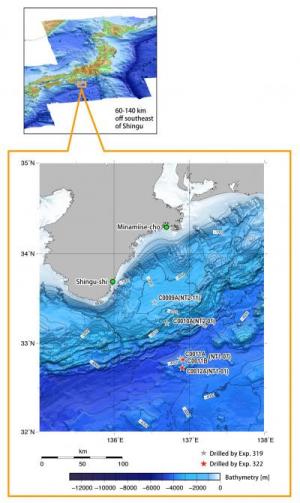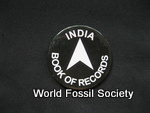Scientific deep sea drilling vessel Chikyu sets a world new record by drilling down and obtains rock samples from deeper than 2,111 meters below the seafloor off Shimokita Peninsula of Japan in the northwest Pacific Ocean. The Japan Agency for Marine-Earth Science and Technology (JAMSTEC), the implementing organization for scientific expedition aboard theChikyu, announced this achievement on 6th September, 2012.
Chikyu made this achievement during the Deep Coalbed Biosphere expedition, Expedition 337, conducted within the framework of an international marine research program, the Integrated Ocean Drilling Program (IODP). BeforeChikyu broke the record, the previous deepest hole in the history of scientific ocean drilling reached 2,111 meters into the seafloor, 504B at Costa Rica Rift.
“We have just opened a window to the new era of scientific ocean drilling,” Fumio Inagaki, Co-Chief scientist of Expedition 337, says. “The extended record is just a beginning for the Chikyu. This scientific vessel has tremendous potentials to explore very deep realms that humans have never studied before. The deep samples are precious, and I am confident that our challenges will extend our systematic understanding of nature of life and earth.”
His European colleague, Co-Chief scientist Kai-Uwe Hinrichs from the University of Bremen, Germany, adds, “I am very glad that I am here today and could witness this wonderful and important moment. Everybody on the ship worked really hard to make this happen. And, I am very pleased about the high quality of the core samples, which show only minimal drilling disturbance. This is very important for our research.”
Chikyu is the state-of-the-art scientific research vessel, capable of drilling as much as 10,000 m below sea level. It is designed to reach the deeper part of the Earth such as the mantle, the plate boundary seisomogenic zones and the deep biosphere.
Drilling down to 2,200 m below the seafloor and obtaining high-quality samples from the deeply buried coal formation is the main objective of the expedition. An international science party aboard Chikyu has already achieved this aim working jointly with CDEX and operational team.
Samples collected from the target coalbeds have been analyzed in the laboratory aboard Chikyu and will continue to be examined after the expedition. The research will provide new insights into the deep life associated with a hydrocarbon system in the deep marine subsurface.
The expedition that started in late July continues coring operations to obtain even deeper rock samples and formation fluids using a new borehole wire-line instrument in situ.
For another 3 weeks, the science party on Chikyu will continue to explore the deeply buried coal formation, in which microbes may be involved in the formation of natural gas, and to tackle fundamental scientific questions related to the co-evolution of Earth and life.



 September 9th, 2012
September 9th, 2012  riffin
riffin 
 Posted in
Posted in  Tags:
Tags: 